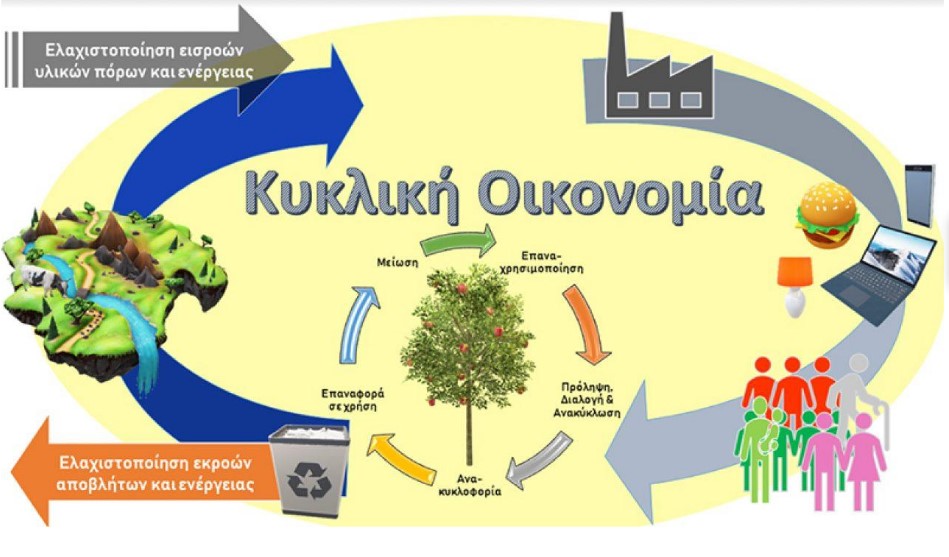Circular Economy and Collective Action

- Summary
- Fact Sheet
- Project Details
This interdisciplinary learning project brought the concept of the circular economy to life through fieldwork, public engagement, and participatory education. In partnership with the Circular Economy Cluster Northern Greece, students developed activities that challenged linear consumption models and promoted collective sustainability practices.
The project’s key outcomes included the “From Waste to Worth” educational exhibit, a Repair Café simulation, and a toolkit for launching circular community actions. By connecting theory with practice and students with citizens, the initiative advanced SDGs 12 (Responsible Consumption and Production), 11 (Sustainable Cities), 13 (Climate Action), and 17 (Partnerships for the Goals).
Challenge
Despite growing awareness of sustainability, linear “take-make-waste” systems still dominate daily life. The project addressed the challenge of making circular economy principles tangible and actionable at a local level through education and civic participation.
Target Groups:
The primary target groups were university students and young professionals interested in sustainability and social innovation. Indirect beneficiaries included citizens, neighbourhood associations, and eco-entrepreneurs reached through public events and city presentations.
Solution
Students co-created an educational pop-up exhibit, ran a Repair Café simulation event, and mapped circular initiatives across Thessaloniki. They developed a publicly available toolkit for communities to organise their own repair and reuse initiatives, combining systems thinking with practical action.
Innovation
The project reframed circularity as a cultural and civic mindset—not just an economic model. By combining hands-on events with critical reflection and public storytelling, it created learning moments that were emotional, accessible, and community-driven.
Impact
More than 200 people engaged with the project’s activities. The toolkit was shared with municipal actors, and the Repair Café concept sparked discussions about creating a permanent initiative. Students developed skills in facilitation, circular design, and stakeholder engagement.
This student project is submitted through:
Aristotle University of Thessaloniki
It involved 6 students from the Department of Philosophy and Education
Project poster: Download Here
